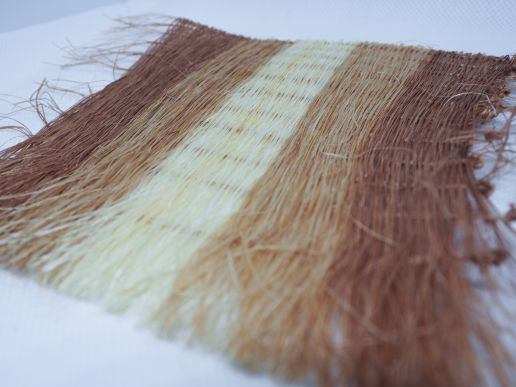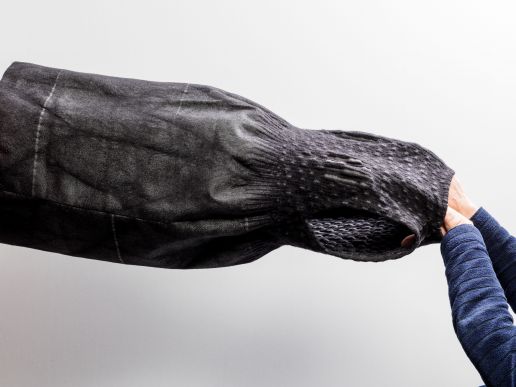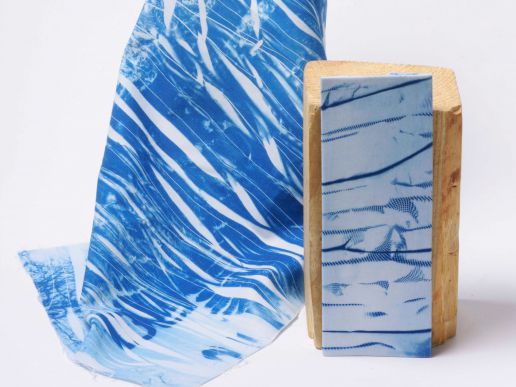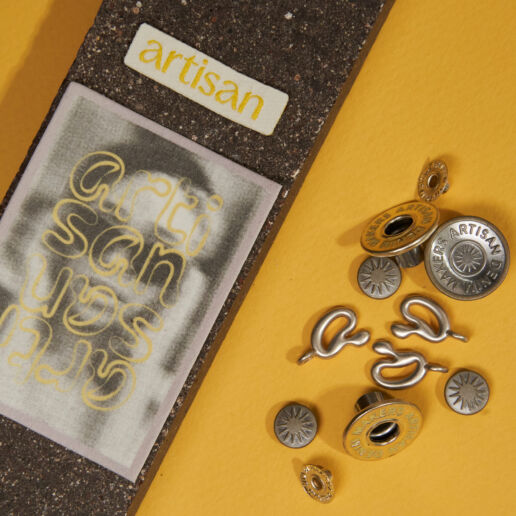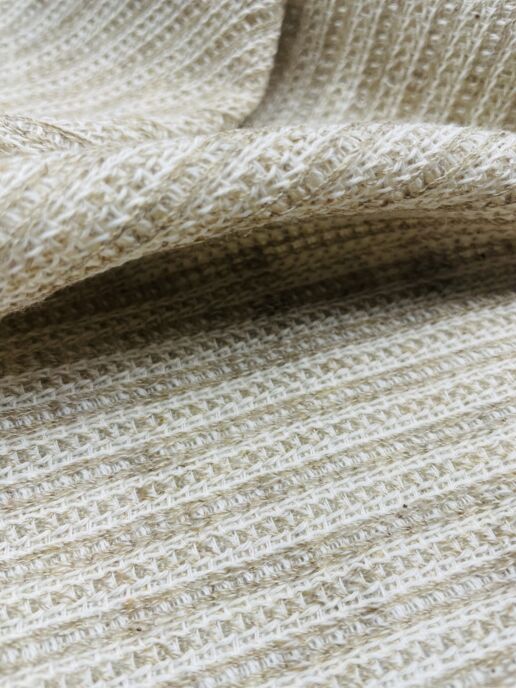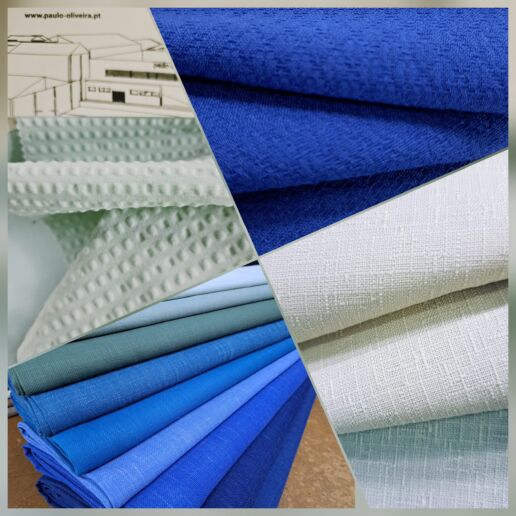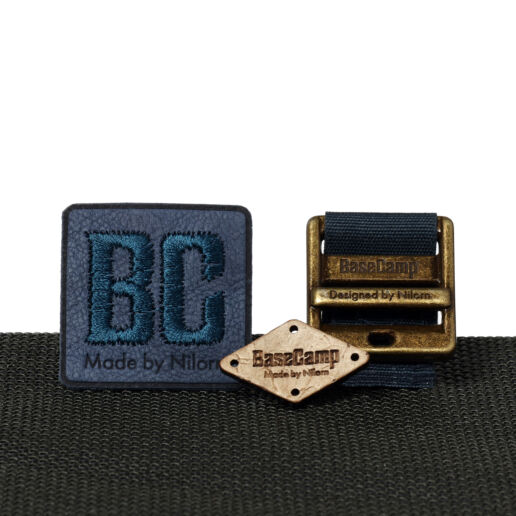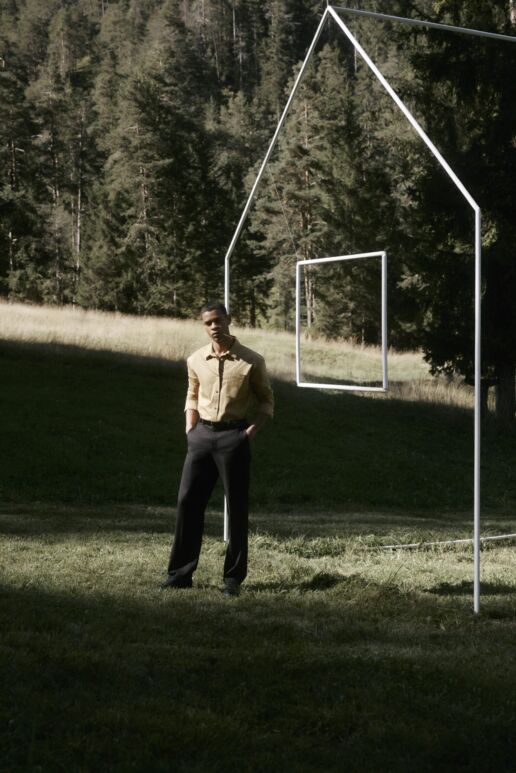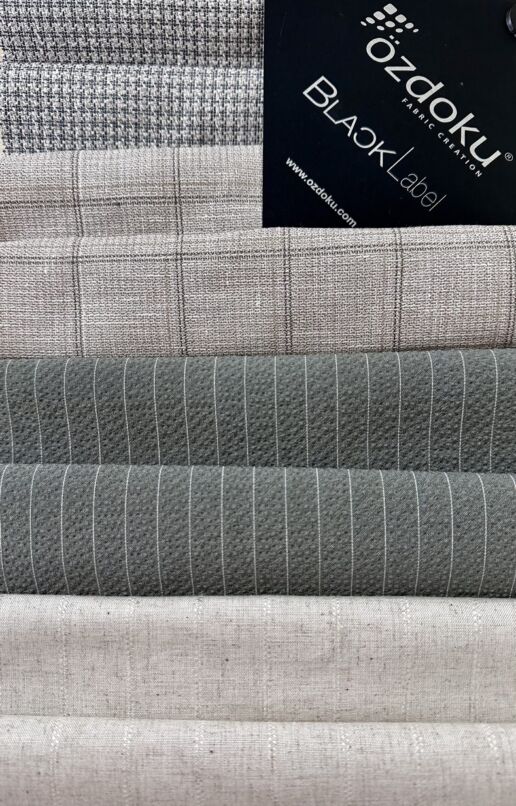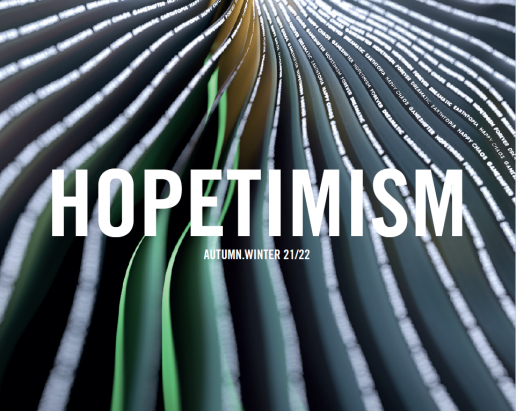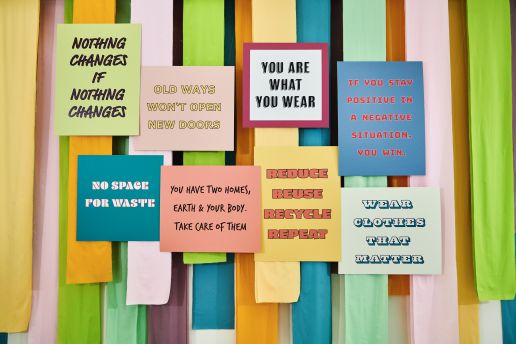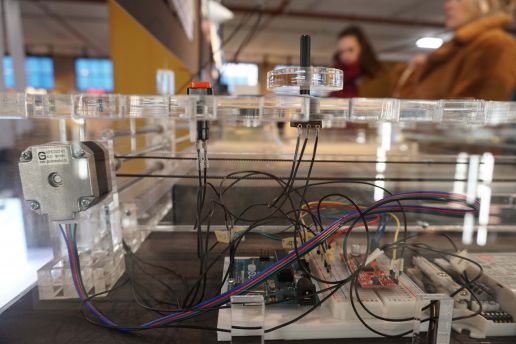New Concepts
Meet Saitex - the vertical Vietnamese Denim Entity
Global jeans manufacturer Saitex is going vertical as it officially announces the opening of its first denim fabric making mill in Vietnam. The new 100,000 square meter facility is located 40 minutes from its cut & sew factory near Ho Chi Minh City where 18,000 pairs of jeans are made on average per day.
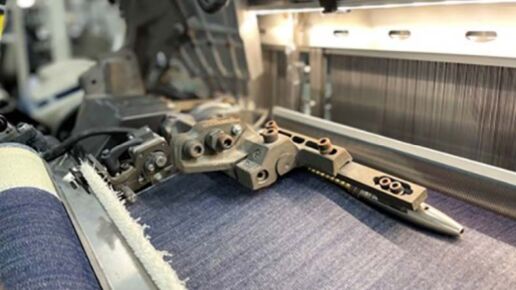
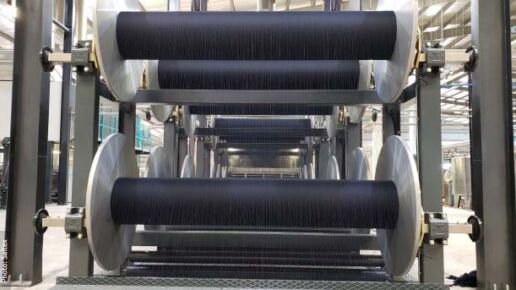
The new mill covers all operations from yarn spinning to weaving and to fabric dyeing and finishing. Saitex has announced it will produce 2 million meters of fabric per month, or 24 million yearly, and some 750 tonnes of yarn per month. These new operations have created 630 new jobs and the company says it will employ 1,000 at full capacity. As it has already done at its cut & sew factory, 20% of the jobs will be filled by people with disabilities.
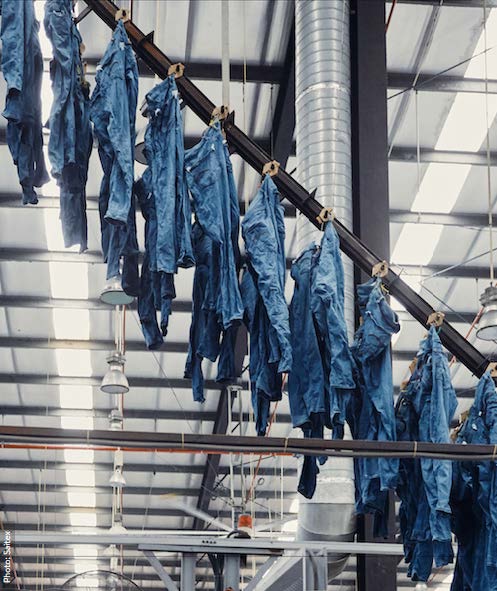
Like Saitex’s “Factory of the Future” in Los Angeles, CA, the new facility incorporates the latest and lowest impact technologies. The mill is equipped to produce yarns in pure cotton or in blends in dual-core, multiple-core and SiroSPUN technologies.
For indigo dyeing, Saitex has installed the Smart Indigo system that pre-reduces indigo via an electrochemical process. This, the company says, leads to lower CO2 emissions by 90%, requires 70% less energy and 30% less water, with oxygen as the only product released. Karl Mayer rope dyeing machines lead to further environmental savings, thanks to fewer dye bathes, and a 30% reduction in indigo and chemical usage.
Other eco-responsible features at the new site include LEED Gold Certified materials for the building, 15,000 solar panels, greywater recycling and rainwater collection systems. A vegetable garden covers 40% of the total site to feed workers and local communities. Saitex says it has also planted 6,000 trees in the industrial park, and has offset its carbon emissions by planting 50 hectares of mangroves in Vietnam, as part of its plan to contribute to climate neutrality by 2025.
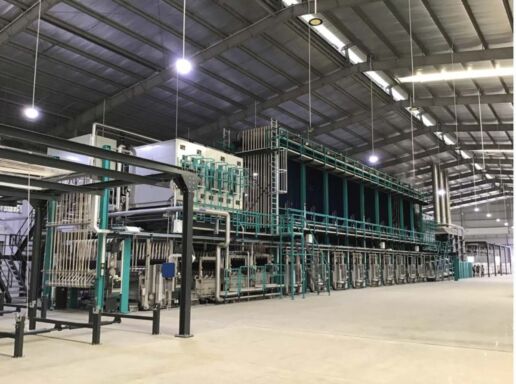

“It has been our long-term vision to close the loop on our operations. With the opening of the mill and the upcoming launch of our textile upcycling facility, Stelapop, our vision will be complete. We will close the circle, allowing us to provide unprecedented transparency in denim production and the ability to turn apparel and textile waste into high-quality goods. Our target is to become the most sustainable fabric mill on the planet making fully circular production possible for our customers.”
Sanjeev Bahl, CEO und Gründer von Saitex
This might be also interessting for you:
Fabric Trends Spring.Summer 25 – Part IX
21. May 2024
The colourful prints tell enchanting stories and are divided into five colour groups that can be perfectly combined.
The latest accessory developments for Spring.Summer 25 – Part VI
16. May 2024
This season’s collection is dedicated to offer top quality trims & accessories; all designed to nurture and encourage international fashion creators’ natural curiosity & creativity.
The Warp Of Symbiogenesis – Sustainable Innovations
14. May 2024
These fabrics carry five stories of invisible connections, narrating tales of cooperation, exploitation, and competition among fungi, lichens, corals, and plants.
The latest accessory developments for Spring.Summer 25 – Part V
9. May 2024
Warmth, light, colours, parties, nature, sense of lightness and freedom...It’s summer.
Fabric Trends Spring.Summer 25 – Part VIII
7. May 2024
Their fabrics are light and contemporary and are characterised by tonal textures, minimal and subtle details and by seasonless neutral colours: all these elements make their product range up todate yet timeless.
DESIGN STUDIOS – SPRING.SUMMER 25 II
2. May 2024
The exhibited designs are characterised by the versatile use of craftsmanship and technology.
Fabric Trends Spring.Summer 25 – Part VII
30. April 2024
They specialize in crafting eco-sustainable fabrics and jerseys using in-house developed yarns.
The latest accessory developments for Spring.Summer 25 – Part IV
25. April 2024
At the core of MONO‘s philosophy lies the idea of using single or minimal materials that are easily separable, making reuse and recycling for garments more accessible and efficient.
BLUEZONE Signature Spring.Summer 25 – Part III
23. April 2024
The aim is to showcase not only the Japanese heritage ofthe ancient hand-stitch technique but also to raise awareness about the significance of repairing and repurposing clothing.
Fabric Trends Spring.Summer 25 – Part VI
18. April 2024
With a rich legacy and a focus on sustainability, they offer a diverse range of ecofriendly fabrics like Modal, Tencel, Linen, Organic and Regenagri Cotton. Their commitment to quality meets the latest fashion trends through innovative designs.
Hopetimism – What FABRIC DAYS Stand For
HOPETIMISM – THIS IS WHAT FABRIC DAYS STAND FOR
This year demands the highest flexibility and creativity from the whole fashion and textile industry. As a long standing partner of the industry, we have taken up the challenge to offer a creative environment for efficient work and inspiration also this season, adapted to the new circumstances: The focussed business trade fair FABRIC DAYS.
FABRIC DAYS take place from 1 – 3 September 2020 at the MOC in Munich. In the four fully booked halls on the ground floor of the MOC, around 300 German and European exhibitors will present their new developments in 5 segments for Autumn.Winter 21/22 in around 700 collections.
Visitors get the chance to meet their suppliers and partners in person again at FABRIC DAYS and use the three fair days in Munich for their collection design, exchange and inspiration. As well as the select, trend setting portfolio, FABRIC DAYS will also offer a meaningful trend forum following the seasonal theme “HOPETIMISM”.

.
HOPETIMISM represents a new zeitgeist in the textile and fashion industry.
A spirit which embraces hidden feelings, visionary thoughts, progressive and pragmatic action and new realities.
HOPETIMISM combines personal and global hope with individual and holistic optimism: A title for the present as well as the future which carries both strength and softness.
.
Get inspired by our HOPETIMISM TREND FORECAST – Order the booklet now!
Discover the 5 HOPETIMISM trend themes and colours in a new format adapted to the changed circumstances. The TREND FORECAST booklet combines a mix of fashion trends, sustainability and innovation with impressions from art, culture, architecture and design.
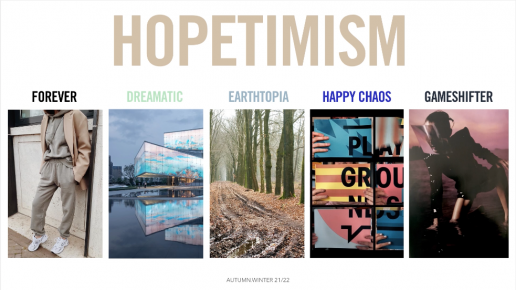
This HOPETIMISM spirit can only be pursued together: in the cooperation of our exhibitors, visitors and us, the organisers of FABRIC DAYS. Among the list of confirmed and “hopetimistic” exhibitors are many international premium suppliers, who will showcase a broad product range. Thanks to established partnerships with leading textile agencies such as Berner & Sohn, Max Müller, LOOMseven and Püttmann, many collections from European manufacturers will be shown exclusively at FABRIC DAYS this season.
The participating Fabric manufacturers include for example Lisa, Yünsa, Henitex and Davaris. In the Additionals area, Peter Büdel, Shindo and Varcotex will present their latest developments alongside others. Lica Design Studio, Circleline and Design Studio Fluxus are three of the exhibiting Design Studios. Lagoon, United 3 Fashion and Dimis Fashion Group are part of the Sourcing Area. For Denim & Sportswear, Tejidos Royo, Verlcorex, Van Delden and Bossa showcase their latest developments. Trend setting innovations are presented by Blue RenTec.one, House of U and Smart Fiber.

Save your personal eTicket for the first textile trade fair after lockdown: FABRIC DAYS! We are already looking forward to welcoming the industry to the MOC Munich from 1 – 3 September 2020.
Ask The Experts
Taking into account the focus on sustainability and innovation driven by THRIVABILITY, a new information concept has been integrated into the Trend Forum at the MUNICH FABRIC START Spring.Summer 21. At various communication islands in the foyer of the MOC, industry experts have provided impulses and answers to current questions, from the origins of the material to exploring the diverse range of production processes and end garment recycling.
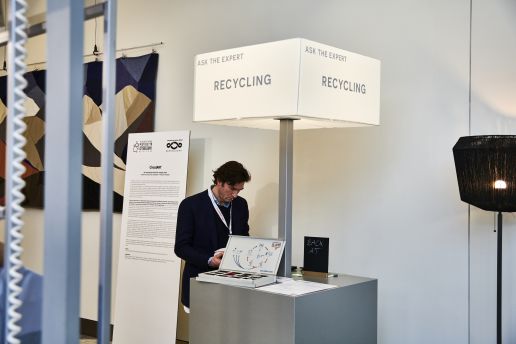
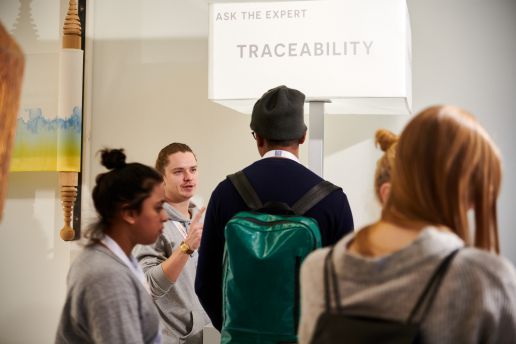
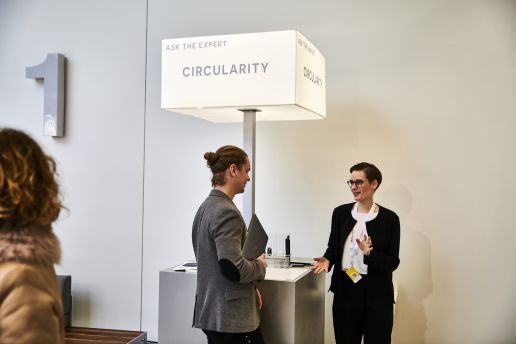
Through direct discussions, visitors gained valuable know-how, insights into topics and current solutions for both sustainable and innovative processes along the value chain:
CIRCULARITY // FIBERS & MATERIALS // MARKETING & COMMUNICATION
RECYCLING // RESPONSIBLE PROCESSING // SOCIAL RESPONSIBILITY // TRACEABILITY
We would like to thank all experts who shared their knowledge and experience with the visitors during the three days of the MUNICH FABRIC START:
CIRCULARITY
Ina Budde | Circular.Fashion
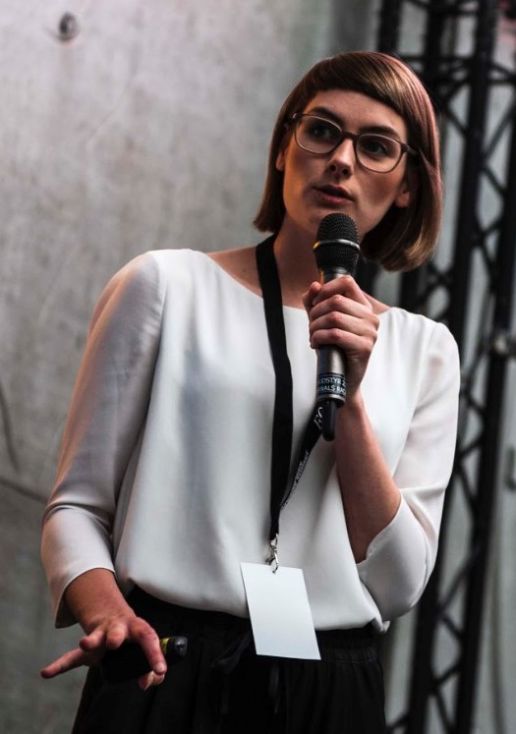
The future thinking designer Ina Budde (MA Sustainability in Fashion) is lecturer, entrepreneur and co-founded circular.fashion. Since 2013 she is working with circularity in fashion and textiles and in 2017, she founded the sustainable change agency circular.fashion together with the business developer Mario Malzacher. Additional to her work with circular.fashion, where she consults fashion brands such as HUGO BOSS and H&M, she gave workshops and lectures for sustainable design at several international universities such as RMIT Melbourne, KEA Copenhagen, RCA London, HAW Hamburg, ESMOD and AMD Berlin. Ina Budde is founding member of the global Open Source Circular Economy association and co-initiated in this frame the first Circular Textile Challenge Berlin. Her work was selected as sustainable innovator 2014 by LAUNCH Nordic and received the NEXT ECONOMY AWARD 2015 and the Global Change Award by the H&M Foundation 2019.
circular.fashion is a sustainable change agency creating product- and system innovation for a circular economy in fashion and textiles. The Circular Design Software supports fashion brands to design circular and sustainable products in a lean and efficient process, with the access to an extensive material database. With the circular.fashion system powered by the circularity.ID, a scannable label in the garment, all actors within the value chain are interconnected by giving each garment an identification, making sure that every step of a garment’s life cycle positively influences circular systems of fashion – so that the products of today become the resources of tomorrow. This system has been selected as one of the sustainable innovations 2014 by LAUNCH Nordic and received the NEXT ECONOMY AWARD 2015. Collections developed with the Circular Design Software received the lavera Green Fashion award 2015 and the Bundespreis Ecodesign Award 2017.

EXPERT INSIGHTS ON:
> Circular Materials: Identify recycling opportunities for your textiles and products
> Design for Longevity and Cyclability: Create products of endless value
> circularity.ID Open Data Standard: Leveraging data and technology for circularity
> Recycling partner network: Enable a reverse supply chain for fibre-to-fibre recycling
> Full Cycle product journey: Capture the products value through recommerce & recycling
Contact: info@circular.fashion
FIBRES & MATERIALS
Thomas Stegmaier | DiTF
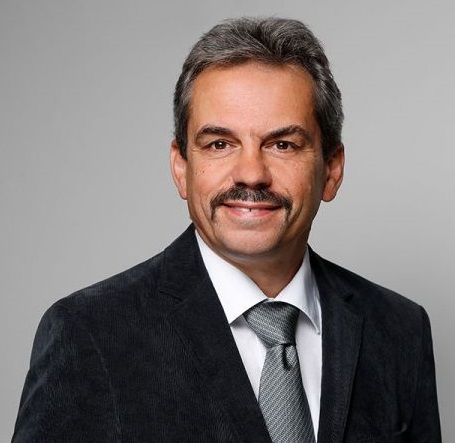
Thomas Stegmaier is Development Manager in research at the DITF (Deutsches Institut für Textil- und Faserforschung Denkendorf). After studying Textile Machine Construction and Control Technology of Machine Tools, he received his doctorate in Process Engineering at Stuttgart University. He then received his postdoctoral lecture qualification in Construction Engineering at Institute for Technology Karlsruhe. Since 20 years now, he works as Development Manager for technical textiles, surface technology, environmental technologies, bionics at DITF.
The DITF (Deutsches Institut für Textil- und Faserforschung Denkendorf) forms the largest textile research centre in Europe with more than 300 scientific and technical staff. As the world’s only textile research facility and covering an area of more than 25,000 m², the DITF work right across the textile production and value chains. Since 1921, they have been across all the major fields within textiles. They are among the leading research institutions worldwide.
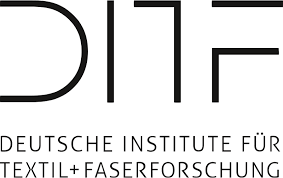
EXPERT INSIGHTS ON:
> What does organic really mean for textiles?
> Limitations of natural fibres
> Ways of recycling textiles
> Composites: Pitfalls for recycling
Contact: info@ditf.de
MARKETING & COMMUNICATION
Alex Vogt | KERN. Consulting
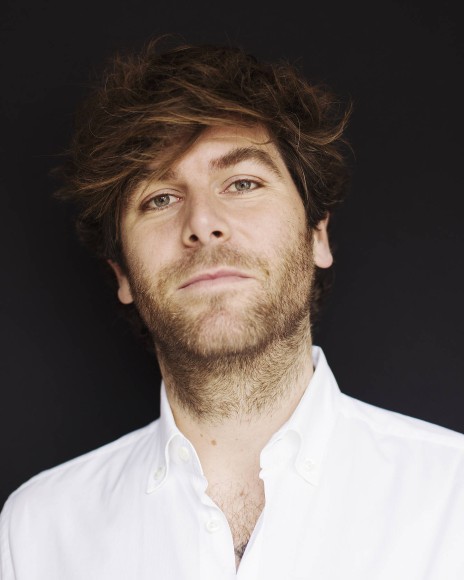
Communications and strategy consultant Alex Vogt sees the complex of innovation management and corporate responsibility as an essential prerequisite of future-orientated business thinking. He initially studied politics and history at the Goethe University Frankfurt and then came into contact with the sportswear and fashion industry through the surf and skateboard scene, going on to gain an MBA specialising in the textile industry at the private LDT Nagold Academy for Fashion Management. Before joining the communications consultancy KERN as a partner and devoting his full attention to the topics of innovation and CR, Alex Vogt held senior positions in fashion retail and marketing.
KERN. designs individual solutions to communicate forward-thinking business content. Go with the flow, let your mind wander and immerse yourself in a new world… KERN. is a strategy and communications consultancy with a focus on innovation and corporate responsibility. KERN. supports companies in the development and implementation of strategies, as well as working as communications consultants and journalists and creating complete graphic design packages. Its clients include companies from the retail and manufacturing sectors, associations and trade shows.

EXPERT INSIGHTS ON:
> Hot Spot- / Impact Analysis; Distinction
> Corporate Responsibility Language
> Moderation of Stakeholder Dialogue (B2B)
> Sustainability Reporting (Text, Layout, Production)
> Communication Concepts & Implementation (internal & external)
> Marketing, Campaigns & PR (B2C)
Contact: hello@kern.consulting
RECYCLING
Paul Doertenbach | I:CO
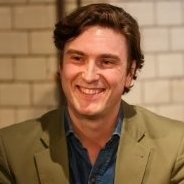
Paul Doertenbach is Head of Marketing and Sales at I:Collect GmbH, the parent company of I:CO. He joined the company 9 years ago after completing a bachelor at Munich Business School, and a MBA at University of Buckingham.
Restorative and regenerative by design, a circular economy industry approach can lead to positive change. Pre-loved clothing and shoes would circulate in closed product and material cycles and be used continuously in the manufacturing of new products. At I:CO, we are committed to this vision. Our innovative take-back system is helping make it a reality and is used successfully by many companies around the world today.

EXPERT INSIGHTS ON:
> Textile Recycling Today and Tomorrow
> End of Life Procedures
> Change Process
> Fibre 2 Fibre
> Closed Loop / Open Loop Recycling
Contact: info@ico-spirit.com
RESPONSIBLE PROCESSING
Tobias Glatt & Fabian Walda | bluesign® ACADEMY
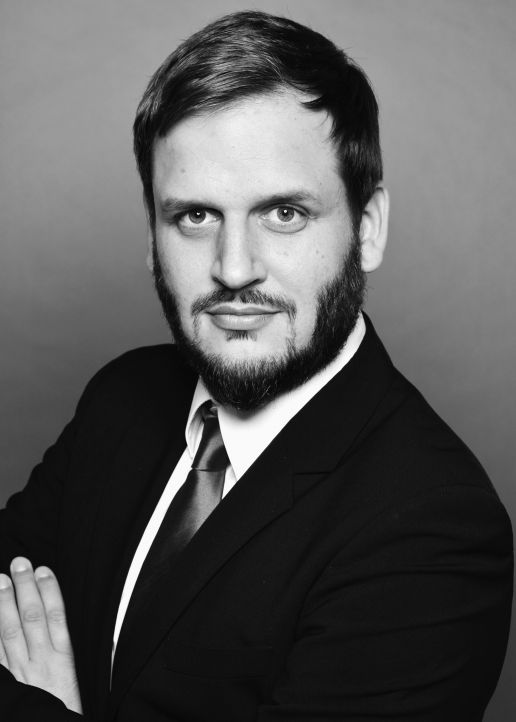
Tobias Glatt is Geographer, Auditor Integrated Management Systems and Energy Management Systems. He works for bluesign since 2009 in different roles and conducted more than 60 audits around the globe with focus on Environment, Health & Safety in textiles and accessories companies. Besides, he follows several sustainability projects, e.g. carbon footprinting, water footprinting and recycling.
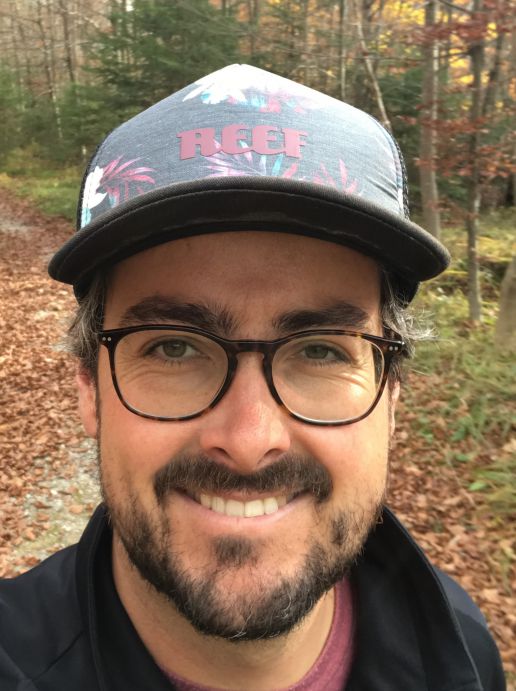
Fabian Walda is Dipl. Ing. In Textile and Clothing Technologies. Since 8 years, he is active at bluesign in technical orientated fields such as audits, international audit supervision and field trainings and lastly R&D projects around sustainable manufacturing.
At the bluesign® ACADEMY, we generate and disseminate knowledge on various EHS and sustainability topics in relation to textile and chemicals industry. This unique knowledge is the basis for improving and expanding the bluesign® SYSTEM as well as our services to stakeholders and the community: Training and lectures, support and customized solutions, consultancy, studies and projects as well as further development of the bluesign® CRITERIA and substance restrictions.

EXPERT INSIGHTS ON:
> Chemicals Management
> Resources, Consumer Safety
> Best Available Techniques and/or Environmental Friendly Processes
> Occupational Health & Safety
SOCIAL RESPONSIBILITY
Mark Starmanns | BSD Consulting
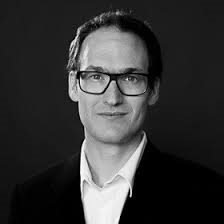
Mark Starmanns works as senior consultant at BSD Consulting Switzerland. His specialist areas are sustainable strategy, sustainable supply chain management, sustainability standards and living wages. He has been working on the topic of fair fashion in research and practice for more than 15 years. Besides working as Sustainability Consultant at BSD Consulting, he received a PhD on corporate responsibility in global clothing supply chains and is the co-founder of the fair fashion information platform GET CHANGED!
BSD Consulting – business. sustainability. development – founded in Switzerland in 1998, we are an international network of consultancy firms providing knowledge and solutions for sustainable development. BSD is now part of ELEVATE, the leading business risk and sustainability solutions provider.
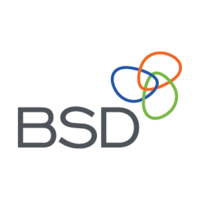
EXPERT INSIGHTS ON:
> Do I need a social Code of Conduct?
> Which social standard is the right one for me?
> Is it enough to outsource monitoring of my social standards?
> I produce in Europe – do I need to care for social standards?
> How do I implement living wages?
> How do I do a human rights risk assessment?
TRACEABILITY
Philipp Mayer | retraced
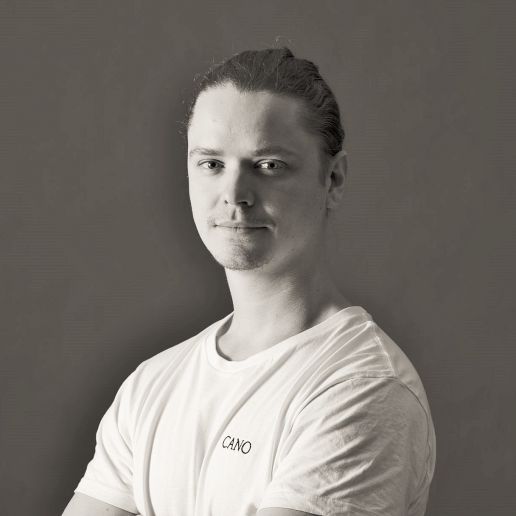
Philipp Mayer is the Co-Founder of retraced and the footwear brand CANO. He lives the entrepreneurial spirit: Directly after graduating from Fontys International Business School in Venlo, the Netherlands, he co-founded the CANO Clothing Company in 2016 and two years later the transparency platform retraced.
Little is known about how our favourite clothing items are made, under what labour conditions, which raw materials are used, and how the process is affecting our planet. End-consumers across the globe are starting to demand reliable, verified supply chain information in order to make educated choices about the products they consume. Retraced is a blockchain-powered transparency platform that allows brands to unlock relevant supply chain information and share their verified efforts in sustainability and ethics with their consumers.

EXPERT INSIGHTS ON:
> Supply Chain Transparency
> Blockchain Verification
> Sustainability
> Consumer Trust
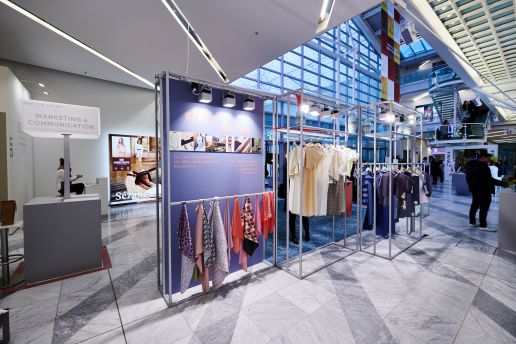
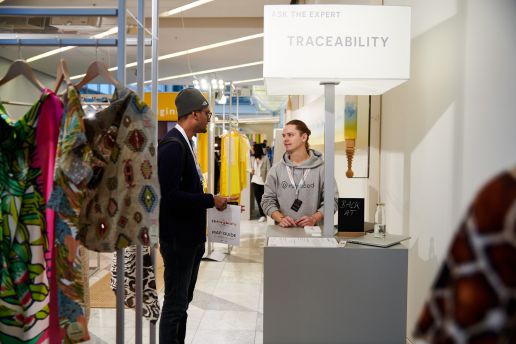
Focus On Thrivability at MUNICH FABRIC START Spring.Summer 21
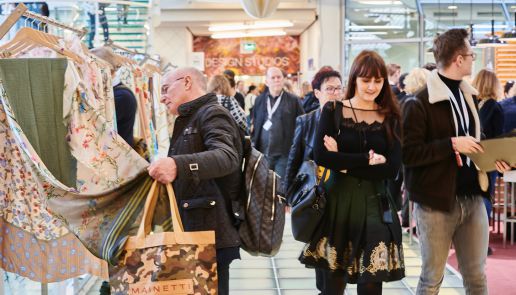
A PARADIGM SHIFT TOWARDS HOLISTIC SUSTAINABILITY
A new level of sustainability, digitalisation, transparency, a growing need for information and the desire to inspire - that's what the Spring.Summer 21 season stands for
The MUNICH FABRIC START with BLUEZONE, KEYHOUSE and the individual showcases presented by around 1,000 international suppliers of fabrics and additionals successfully introduced the Spring.Summer 21 season from 04 – 06 February in Munich. The approximately 18,400 international trade visitors were offered a broad spectrum of strongly positioned collections with innovative product and trend statements that demonstrated a new awareness of ecology and the increasing relevance of natural looks and resource-saving materials.
The MUNICH FABRIC START has shown very clearly that this fair format is convincing as a strong industry platform in times of changes and major challenges. Thanks to the professionalism and sovereignty of all those involved, the necessary responsibility to approach the reorientation of the market constructively and in a solution-oriented manner has been created. We have experienced this willingness in numerous discussions with exhibitors and visitors during the three intensively used days of the fair. We therefore feel confirmed in our current and future orientation.
Sebastian Klinder, Managing Director MUNICH FABRIC START

The design team of Boss Women emphasizes not only the good atmosphere but also the high-quality and quantitative offer:
We enjoy the relaxed atmosphere here in Munich. All the important suppliers are on-site, so we can work excellently. The main topic is of course sustainability and the correspondingly wide range of natural materials such as linen as one of the favourites for summer 21. There are also very innovative jerseys, bondings and neoprene knittings as new and exciting materials.
This was also confirmed by Theresa Austin, Advisor AKOJO MARKET, Co-founder Paris UIUX, LVMH Group Digital:
I thoroughly enjoyed my time at Munich Fabric Start. The Bluezone and Keyhouse, in particular, were eye-opening for me and I was very impressed at the number of suppliers working with innovative new technologies and methods to produce in more sustainable ways. It was a great showcase of sustainable innovation and it was very inspirational to speak with so many experts on such a key topic. I left both motivated and educated, with a lot to share back into my work.
Further background information on the main theme, the innovations of the season and the trade fair highlights can be found on our HOMEPAGE and in the PREVIEW PRESS RELEASE. High-resolution pictures can be found in the PRESS GALLERY.
FOCUS ON THRIVABILITY
The guiding theme THRIVABILITY met the current mood of the industry, in which future-oriented entrepreneurial spirit meets enthusiasm and a changing understanding of values.
In Munich, it became very clear that the era of sustainability is currently determining all talks and discussions in the textile industry. The tenor seems unanimous: The industry is on the right track and now it is time to take responsibility, turn information into action and create transparency.
Claudia Lanius, Lanius, highlighted the positive approach to a new form of open-mindedness:
The largest portfolio of sustainable products is on display here in Munich. Such a broad spectrum in this density cannot be found anywhere else. All major suppliers are on-site. In addition, there is an excellently staffed accompanying program of panels and discussion rounds. The acceptance of sustainable topics is increasing all the time, which is a very positive development overall. This is also reflected in the competent awards for articles in the ReSOURCE Area.

The increasing interest in sustainability, certifications and future-relevant topics confirms Franziska Dohrmann, GOTS:
Our contact to major brands is clearly increasing and the interest in certified articles is growing. Already on the first day of the fair, we recorded a strong visitor frequency with very good discussions. The increasing acceptance is also reflected in the highly attended lectures of the ReSOURCE Forum.
INFORMATION, RESPONSIBILITY AND TRANSPARENCY IN DISCUSSION
The different aspects, innovations, collaborations and communication concepts were also the focus of the numerous well-attended side events at KEYHOUSE, the ReSOURCE Area and BLUEZONE.
As a trade fair organiser, we also see ourselves in the role of an impulse generator that can generate a corresponding reach. Therefore, we attach particular importance to a qualitative and varied supporting programme which, thanks to international experts, offers an insight into current innovation topics, problems and solutions and thus forms the basis for transparent knowledge transfer.
Frank Junker, Creative Director MUNICH FABRIC START
Right at the start on Tuesday morning, trend forecaster David Shah addressed precisely these challenges in his enthusiastic Keynote „The 10 Design Pillars of Design“. The publisher and CEO of View Publications drew scenarios of new retreat possibilities and the search for structures and simplicity in times of digitalisation and diversification.
The panel discussion on the subject of “Future Textile Supply Chain” with international experts also provided new thought-provoking impulses on how the textile chain can be transformed through sustainable solutions and networking. In addition to transparency, intensive communication with consumers and the development of technologies, product development, quality and aesthetics should not be forgotten as indispensable criteria.

The textile value chain is currently being radically rethought. Every company has to deal with these impulses and develop individual concepts. One thing is certain: in the future, too, only those companies will be successful whose fashion fascinates and who act in an economically sensible manner. Digital processes, decentralized production, smaller batches, shorter lead times, comprehensive transparency and new circular business models – it remains exciting to see which of these developments are scalable and when. One thing is certain: now is the right time to develop principles for dealing with the new perspectives for your own company. In view of these fascinating prospects, a 90-minute expert panel on “Future Textile Supply Chain” is just enough to scratch the surface of the new possibilities.
Alexander Vogt, Kern. Consulting
INNOVATIONS, FUTURE MATERIALS & NEW TRENDS
Knowledge, transparency, quality, responsibility and communication influence the current multitude of product and process innovations.
Linen, both pure and blended with cotton, is the big favourite for the season Spring.Summer 21. Other material innovations were super-stretch silk, recycled polyester, Ecovero-Tencel linen, Naia and Cupro fibre blends or hemp textiles – the constant reference to natural fibres and surfaces was clearly visible.
The theme of Li Edelkoort’s exclusive trend seminar underlines this statement. In her two-hour “Green Wave” lecture, the internationally renowned trend expert presented her interpretations of Spring.Summer 21. Here, too, a rethinking of natural materials and looks was clearly evident. In her outlook on Autumn.Winter 21/22, she favours White as a global colour, on which new structures, styles and designs are based.

BLUEZONE – Reject egoism. Create ECOISM. Rewrite your future
The denim industry is facing new challenges, which the Blue Community faced as an optimistic and international community at BLUEZONE under the ECOISM theme.
The strong network of over 100 major international brands and numerous denim experts was looking for answers to a conscious consumer approach and a growing interest in ready-made solutions that offer future-oriented products, state-of-the-art technological processes and complex functionalities.

Current topics that determine the denim market were discussed in depth in lectures and international panel discussions. The Rivet 50 Talk on the topic of “2020 Vision” on the first morning of the fair gave an outlook on companies, technologies and fashion in the next decade. One of the key statements highlighted the changing demands of consumers – stationary retail can only survive with new concepts, such as offering sustainable fashion, vintage, and repair stores under one roof. This is precisely why the denim community must move closer together.

Alberto Candiani von Candiani confirms that the community spirit of the ECOISM guiding theme determines the future:
ECOISM – I love the concept, the slogan, the theme of this year’s BLUEZONE. It’s about green innovations, which must be visible and tangible, and about consumers who are better informed than ever before and are looking for a new way of consuming. We, as the Blue Community, are responsible for a massive change that will transform what is considered a “polluting” industry into a green model based on sustainable innovation and circularity. Denim can be seen as the most popular, “democratic” and perhaps “invasive” fabric ever made on the planet – and we, the Ecoists, want to change denim to become the representative flag for this revolution.
KEYHOUSE – A STRONG NETWORK OF CREATIVE MINDS
The think tank of MUNICH FABRIC START offered concrete approaches for a future-oriented textile and fashion industry. Information, transparency and interaction stand for an inspiring network of innovative projects and sustainable collaborations.

Munich Fabric Start’s advanced platform, KEYHOUSE, has been paving the way into the future for some time now, connecting innovators and the industry. The innovation space, which brings together game changers and pioneers, successfully gives traditionalists in the textile industry a glimpse of the future. KEYHOUSE provides the space for superstars of fashion technology to present new technologies, sustainable developments, expert workshops and trend seminars. I would easily describe KEYHOUSE as the “Department of Innovation” for fashion companies.
Muchaneta Kapfunde, Founding Editor-in-Chief FashNerd.com
In her keynote speech “Rethinking the business of fashion”, Muchaneta Kapfunde called for a rethinking within the fashion industry. The change is possible and necessary due to the influence of digitalisation and technology. Examples of fundamental changes are block chain transparency, compostable packaging, on-demand solutions and the production of textiles based on dairy products.

In the panel discussion of Sportswear International, international experts discussed how automation, digitalisation and localisation will change the global fashion market and what impact these new standards will have on CSR issues and sourcing structures.
Once again, the SUSTAINABLE INNOVATIONS Area at KEYHOUSE, curated by Simon Angel, received great attention. He emphasized above all the openness of the visitors to the complex topics, to new materials and material extraction. He said that particularly pleasing was the willingness to exchange ideas, form networks and thus strengthen the community of all those involved within the textile and fashion industry.
The Keyhouse has a unique energetic atmosphere with very inspiring visitors. Especially exciting was the great interest in holistic sustainable concepts that go into depth. So the industry is definitely on the right track
Chandra Prakash, Founder & CEO Cocccon
The future of the textile industry was not only discussed in the seminars and lectures – the MUNIQUE MOODS party on the first evening of the fair also provided an opportunity to strengthen the community and exchange information. Around 1,500 guests gathered in an elaborately staged and specially built palace tent.

Interview with Simon Angel, Curator of SUSTAINABLE INNOVATIONS
Simon Angel has been the curator of the Sustainable Innovations Area in the KEYHOUSE since 2018. For the Munich Fabric Start fair, he is looking for exciting young designers, extraordinary innovations and new perspectives from the textile world. Register now to attend Sustainable Innovations at KEYHOUSE.
Simon, what Sustainable Innovations can we look forward to this season?
Each season, we try to present textile tendencies and new materials to inspire and broaden the context, techniques, meaning and value of textile related topics. Our goal is to show a glimpse of a possible future, so the industry and its professionals can use it to get to the next level. It is a constant dialogue. We are a community, growing and connecting together, sharing visions and ideas – it’s an inspiring atmosphere.
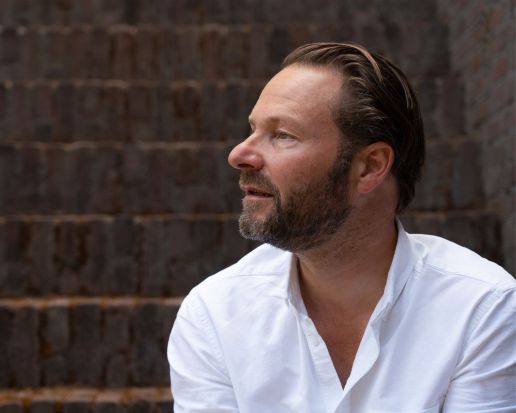
This edition of Munich Fabric Start’s Sustainable Innovations is a prime example to this approach – not only in respect to the responsibility held as a textile fair but also from the attitude and perspectives of the designer’s present. You see their visions in sound-created and laser print work. You feel their ideas in the provocative perspective that plastic is part of our natural landscape. And in the concept that ditching seams can lead to new manufacturing techniques and design approaches. But also, in revaluing materials like sisal and paper and the use of core natural elements like milk, starch and salt-crystals. I am positive that these projects will start a dialogue we can all learn from.
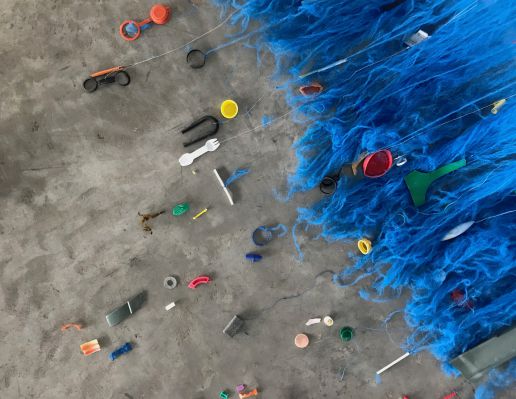
Again and again, the fear of the future, the consequences of environmental pollution and climate change emerge in the curated works. Challenge or opportunity, what do you think?
Your question shows that we are all still at very different stages in the process. Some people are aware and concerned about the transformations our environment is facing. Some are becoming aware of the changes and starting to value what still is. Others are reacting with action, ready to change the game. Specifically that we all have different point of views – with even more concerns to consider. So, there is not one dialogue, there are hundreds. There is not one solution, there is – as I refer to it – a chain of change happening on all levels. Therefore, I there is no “or” in between, instead it is an “and”: We have challenges AND opportunities. All of the designers offer opportunities through different approaches and create change, as challenging as it is.
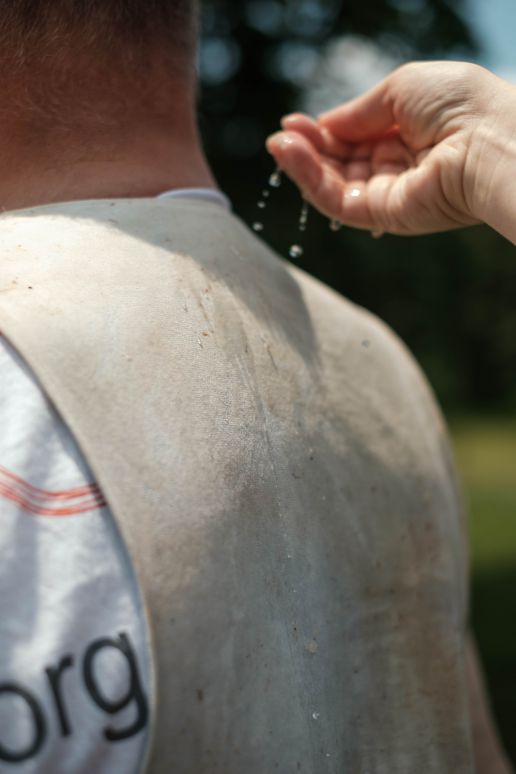
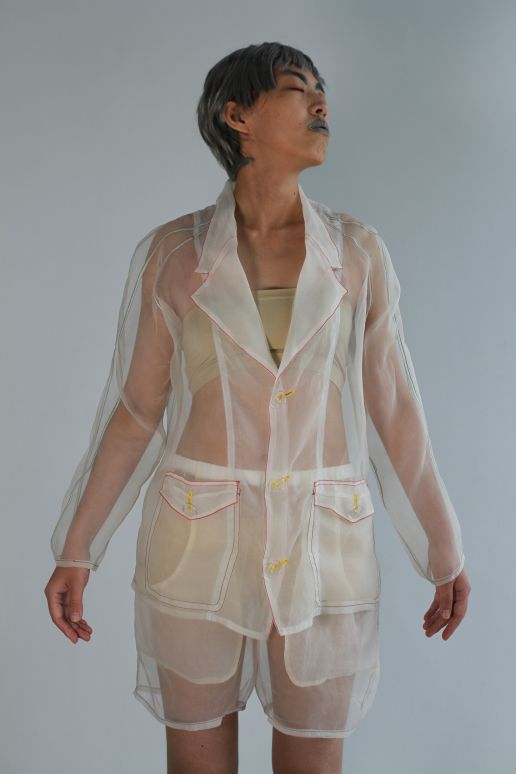
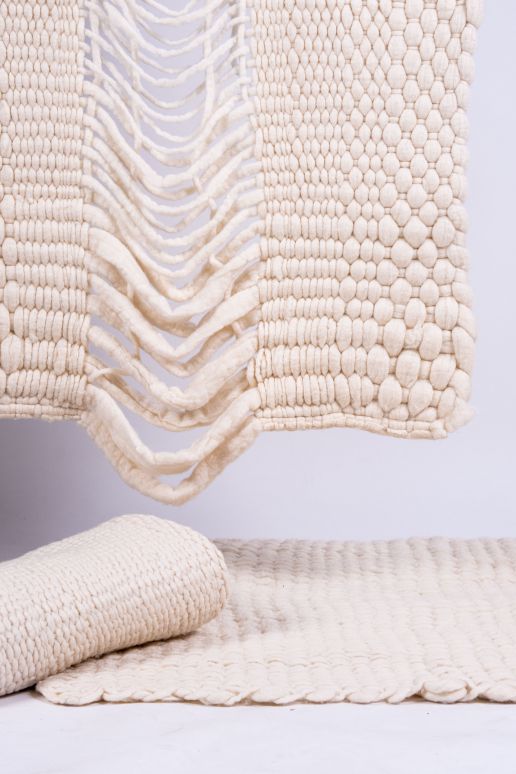
The use of potato starch, old printing methods and traditional Korean craftsmanship – one could almost say that “back to the roots” is the motto of the upcoming season. Posing the question, where does this development come from?
As designers are digging deeper, they often rediscover historic production processes and design principles, that make sense in the now as well. “We learn from history that we never learn from history”, a quote of a dear friend of mine. Now I learn that there are two meanings to this. The project of Caterina Tiolo is a good example for how changing the order of an old process can lead to totally new approaches – design and material wise. The development of redefining traditional processes and ingredients is really exciting. Or look at “Consumption of heritage” by Lee Sun: She uses traditional crafts and simple materials like paper in a modern fashion context and in that way values her heritage. So yes, if “back to the roots” to you means “revitalise tradition and values”, it is certainly a dominant development.
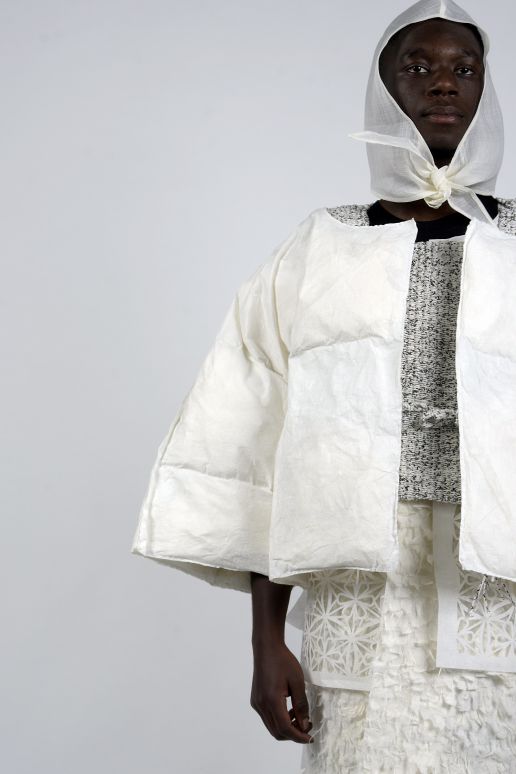
You are curating the Sustainable Innovations for the fifth time this season. What has changed?
From my perspective, it is not working on changes – we are working on this as a journey. I see many strong developments and tendencies and they are driven by dedicated professionals. Not only business and money-driven but instead also by values. I see that the industry is working on becoming a better version of itself. Feeling a glimpse of shared responsibility between designers, manufacturers, press and media, I am very optimistic. In the end it is all about the perfect couple: quality and consciousness.
2020 – a new decade begins. Looking to the future: how do you think the interplay of sustainability and textiles will develop?
As optimistic as I may sound – the more research I do in the field of textiles and fashion, it all comes down to our individual responsibilities: our behaviours as a human, existing as a consumer in this economic system. The causality of change has two central elements to start with: demand and supply. We have to stop putting ‘the good’ into a colonial and capitalistic context as from the early start of textile history to the fashion world of the now: The more we are aware and the more we share, together we can make this a great journey. Let’s take this chance and restore the enthusiasm to this economic world. Let’s thrive!
Visit Sustainable Innovations at KEYHOUSE on February 4-6 2020 in Munich.
